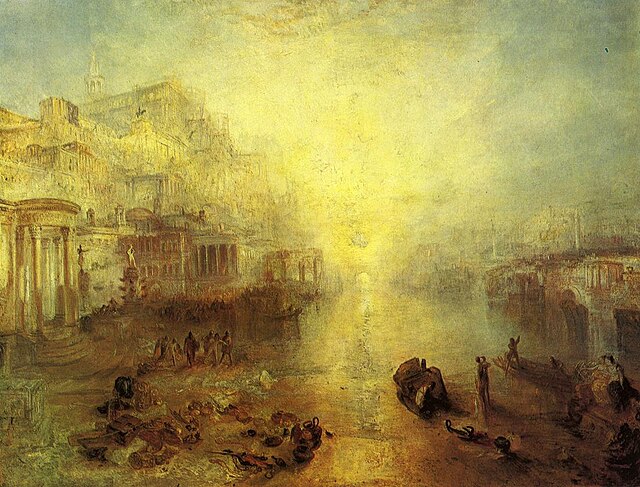Arachne is the protagonist of a tale in Greek mythology known primarily from the version told by the Roman poet Ovid, which is the earliest extant source for the story. In Book Six of his epic poem Metamorphoses, Ovid recounts how the talented mortal Arachne challenged the goddess Athena to a weaving contest. When Athena could find no flaws in the tapestry Arachne had woven for the contest, the goddess became enraged and beat the girl with her shuttle. After Arachne hanged herself out of shame, she was transformed into a spider. The myth both provided an etiology of spiders' web-spinning abilities and was a cautionary tale about hubris.
Minerva and Arachne, by René-Antoine Houasse, 1706.
Athena and Arachne (Antonio Tempesta)
The Spinners, or, The Fable of Arachne (1644–48) by Velázquez
Pendule with Arachne and Athena in Meissen porcelain, attributed to Johann Gottlieb Kirchner and George Fritzsche (1727)
Publius Ovidius Naso, known in English as Ovid, was a Roman poet who lived during the reign of Augustus. He was a younger contemporary of Virgil and Horace, with whom he is often ranked as one of the three canonical poets of Latin literature. The Imperial scholar Quintilian considered him the last of the Latin love elegists. Although Ovid enjoyed enormous popularity during his lifetime, the emperor Augustus exiled him to Tomis, the capital of the newly-organised province of Moesia, on the Black Sea, where he remained for the last nine or ten years of his life. Ovid himself attributed his banishment to a "poem and a mistake", but his reluctance to disclose specifics has resulted in much speculation among scholars.
Anonymous 18th-century engraving
Statue of Ovid by Ettore Ferrari in the Piazza XX Settembre, Sulmona, Italy
Ovid Banished from Rome (1838), by J.M.W. Turner
Medea in a fresco from Herculaneum








